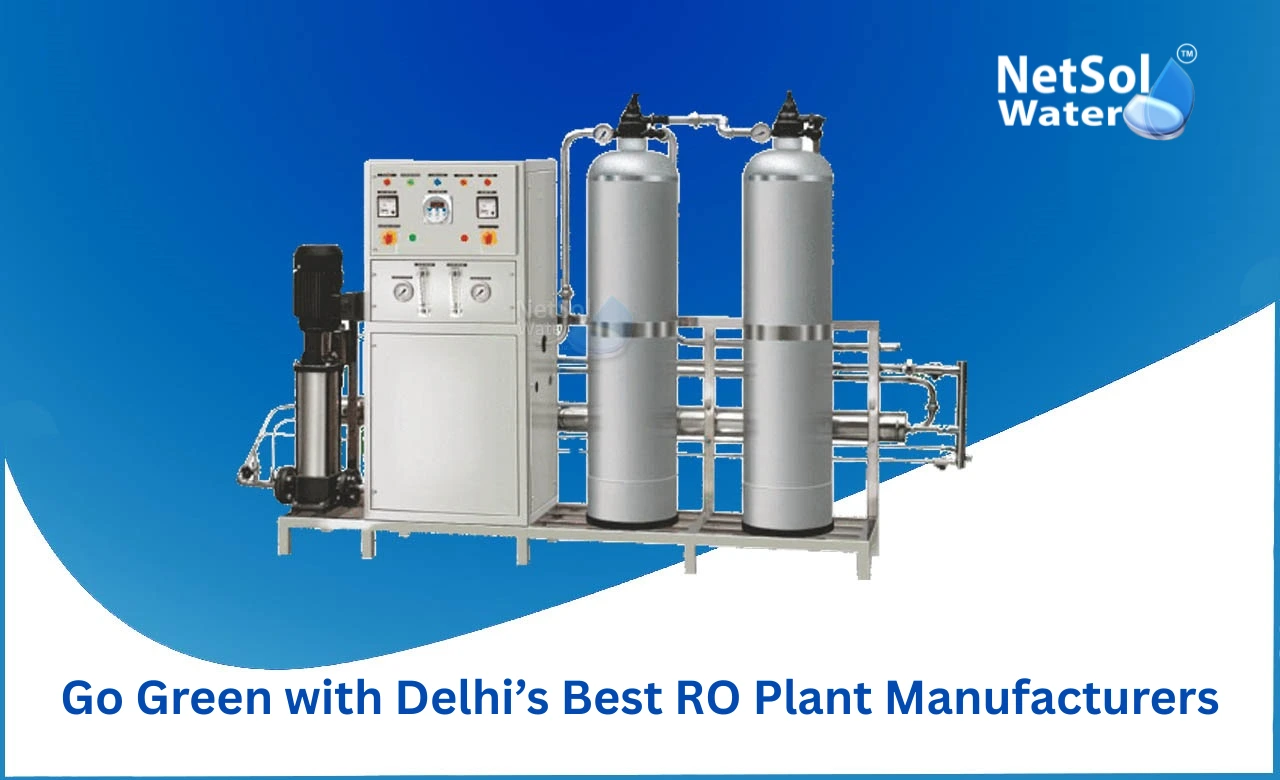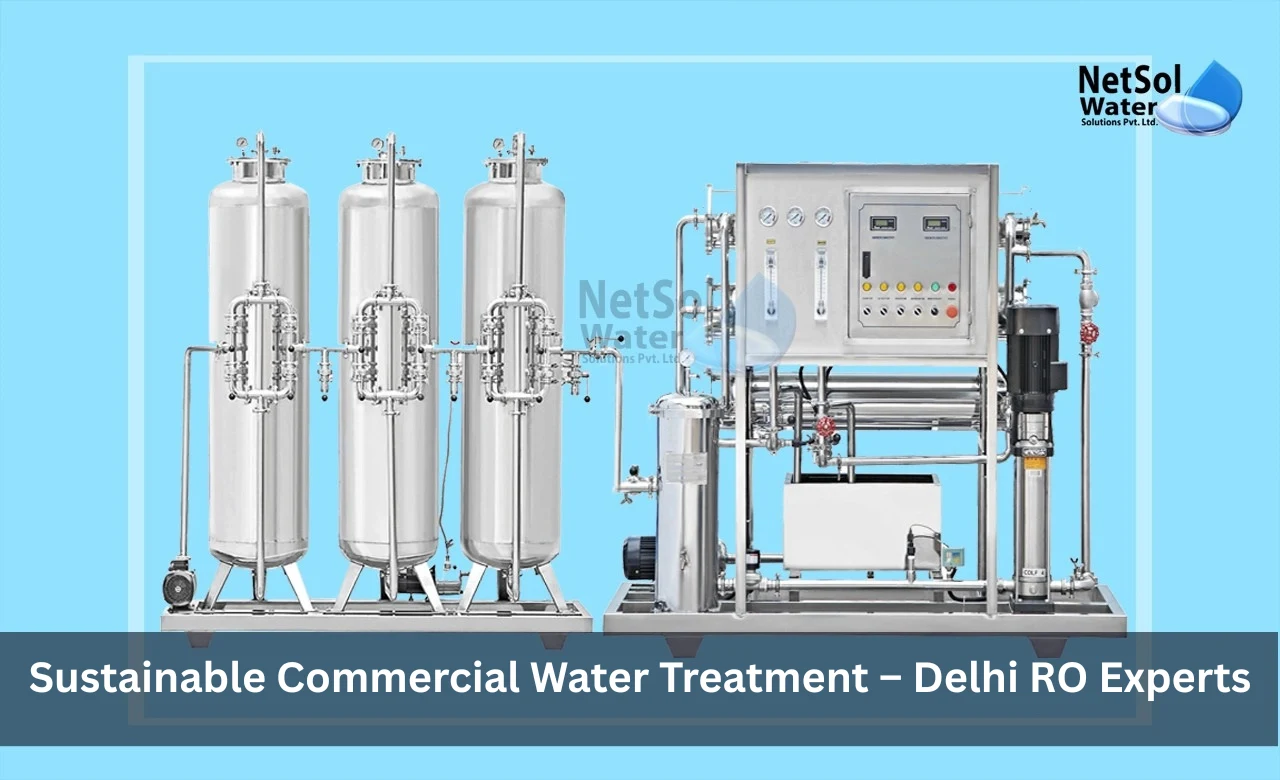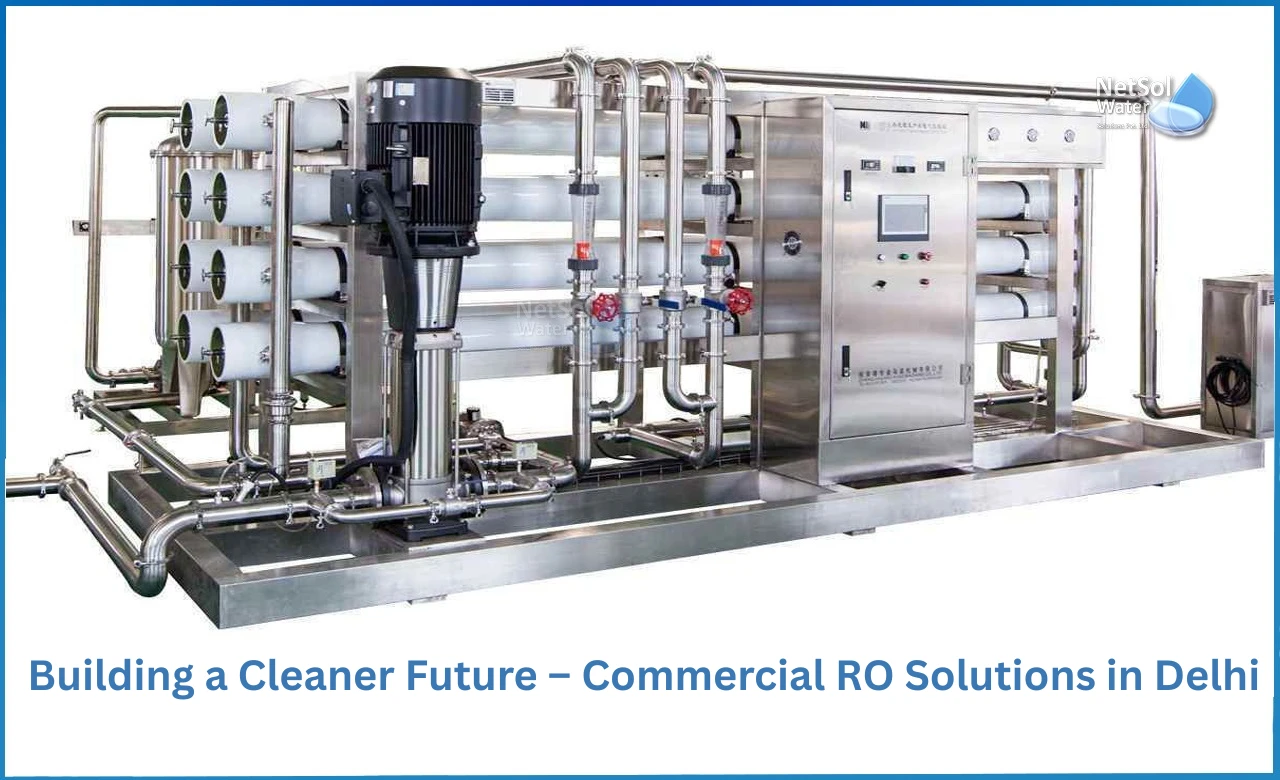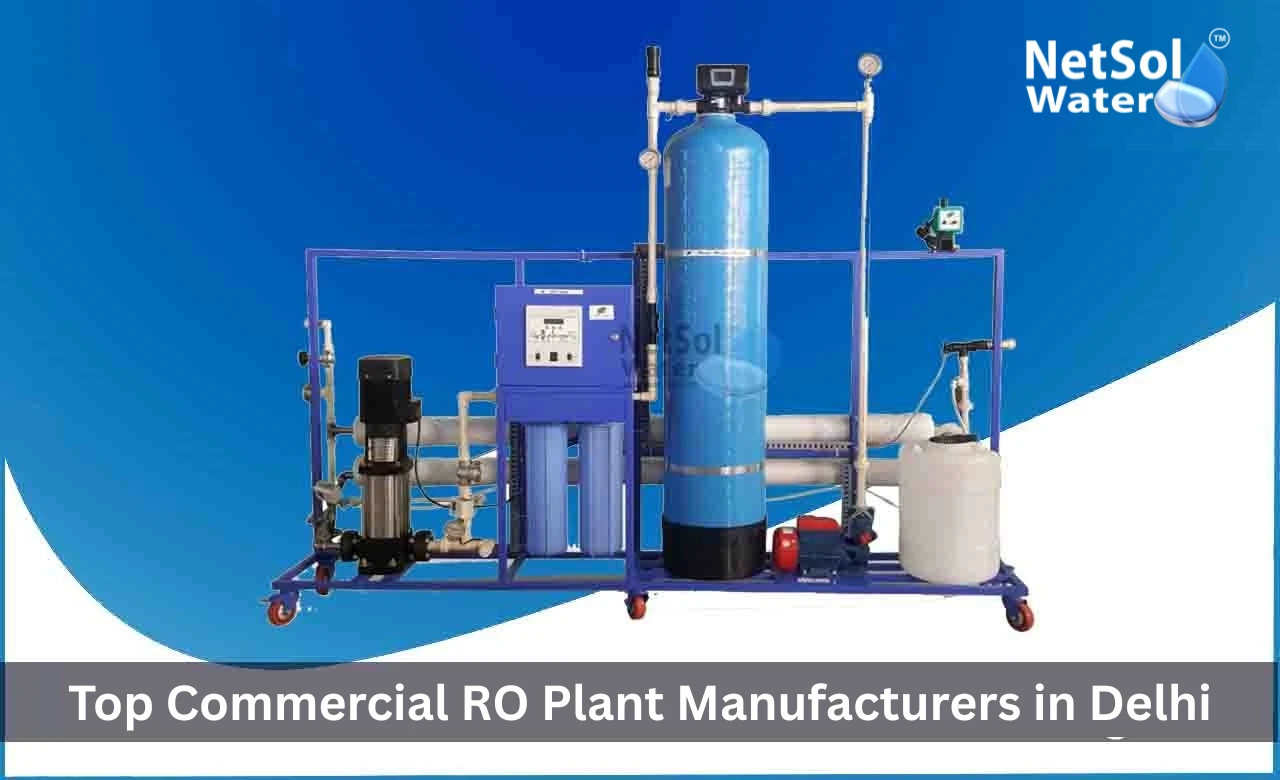Go Green with Delhi’s Best RO Plant Manufacturers
Delhi’s growing population brings water quality challenges. Clean water matters for homes, offices, and industries. Choosing the right Commercial RO Plant Manufacturer in Delhi can ensure safe, pure water and support sustainability goals. Netsol Water has built a reputation for reliable performance, robust design, and responsive service. We will explore why Netsol Water leads the market, how their technology excels, and what benefits their plants deliver.
Technology and Design
Advanced technology and thoughtful design define any high‑performing RO plant. Investing in innovation ensures efficient removal of impurities and long plant life. Let us have a look on some core design and technology features that set Netsol Water apart.
Membrane Selection and Configuration
Netsol Water uses premium thin‑film composite membranes. These membranes block dissolved salts, heavy metals, and microbes while allowing water flow. Engineers configure membrane stages to optimize recovery and minimize waste. A well‑designed membrane train can achieve up to 80 percent recovery in commercial settings, reducing raw water demands and wastewater discharge.
Automated Control Systems
Automation brings precision and ease of operation. Netsol Water integrates PLC‑based control panels that monitor pressure, flow, and water quality in real time. Alarms trigger if any parameter drifts from set limits. This prevents damage, ensures consistent output, and reduces manual intervention. Operators gain clear dashboards and remote access options.
Modular Skid‑Mounted Units
Modular skid‑mounted design simplifies installation and future expansion. Each skid arrives factory‑assembled and tested. Onsite teams connect inlet, outlet, and power lines. If demand grows, additional skids plug into existing lines without major civil work. This flexibility supports phased investments and minimizes downtime.
Quality Assurance and Compliance
Quality assurance and regulatory compliance protect users and businesses. A trusted Commercial RO Plant Manufacturer in Delhi must meet national and international standards. Let us have a look on some quality and compliance measures Netsol Water follows.
Material Certification and Testing
All components, from pumps to membranes, carry certified test reports. Netsol Water sources stainless steel vessels, FDA‑grade membranes, and energy‑efficient motors. Incoming inspection tests for pressure tolerance, corrosion resistance, and dimensional accuracy. Such rigor prevents failures and extends plant lifespan.
Standards and Regulatory Alignment
Netsol Water plants conform to BIS codes for water treatment equipment and ISO 9001 quality management norms. Compliance ensures safe design, traceable production, and consistent documentation. Regular audits and third‑party inspections verify adherence to protocols.
Performance Validation
Before delivery, each plant undergoes performance validation. Engineers run trials using feed water samples. They record permeate quality, recovery rate, and energy consumption. Only after meeting or exceeding benchmarks does a plant ship. This step assures clients of guaranteed output and reliability.
Installation and After‑Sales Support
Even the best technology fails without proper installation and support. A leading Commercial RO Plant Manufacturer in Delhi must excel in service. Let us have a look on how Netsol Water ensures smooth installation and ongoing assistance.
Professional Site Survey and Commissioning
Netsol Water conducts detailed site surveys before quoting. Technicians assess feed water quality, space constraints, and power availability. They recommend pre‑treatment needs such as sediment filters or softeners. During commissioning, certified engineers calibrate instruments, test runs, and train onsite staff.
Maintenance Programs and Spare Parts
Regular maintenance preserves plant efficiency. Netsol Water offers personalized AMC (Annual Maintenance Contract) plans. These include periodic cleaning of membranes, inspection of pumps, and replacement of wear parts. Clients receive genuine spare parts stocked nearby, ensuring rapid turnaround and minimal downtime.
Remote Monitoring and Troubleshooting
Netsol Water’s remote monitoring platform tracks performance metrics via IoT sensors. If any anomaly appears, pressure drop or conductivity rise, the system alerts the service team. Technicians diagnose issues remotely and guide onsite staff. Swift troubleshooting reduces production loss and protects water quality.
Environmental and Cost Benefits
Sustainable water treatment cuts environmental impact and lowers operating costs. Selecting the right Commercial RO Plant Manufacturer in Delhi delivers both sustainability and financial savings. Let us have a look on the environmental and cost benefits offered by Netsol Water plants.
Water Recovery and Waste Reduction
High recovery rates mean less reject water sent to drains. Netsol Water plants recover up to 80 percent of feed water. Lower reject volume eases wastewater management and conserves fresh water resources. Many clients reuse reject water for landscaping or cooling towers, closing the water loop.
Energy Efficiency and Operating Costs
Energy cost forms a large part of running expenses. Netsol Water fits energy‑efficient high‑pressure pumps and optimizes pump speed. These features cut power consumption by up to 30 percent. Clients see reduced utility bills and faster return on investment.
Lifecycle Cost Analysis
Beyond initial price, lifecycle cost matters. Netsol Water provides transparent cost models that include installation, energy, maintenance, and membrane replacement. This lets businesses plan budgets and compare ROI across vendors. A lower total cost of ownership makes Netsol Water the smart choice among Commercial RO Plant Manufacturer in Delhi.
Conclusion
Choosing the right Commercial RO Plant Manufacturer in Delhi shapes water quality, costs, and sustainability. Netsol Water combines advanced design, strict quality control and comprehensive service in every plant. Their proven track record helps businesses, institutions, and industries secure pure water. Invest in reliable water purification and support Delhi’s green future. Reach out to Netsol Water today to discuss your needs and request a consultation.
Phone: +91-965-060-8473
Email: enquiry@netsolwater.com










